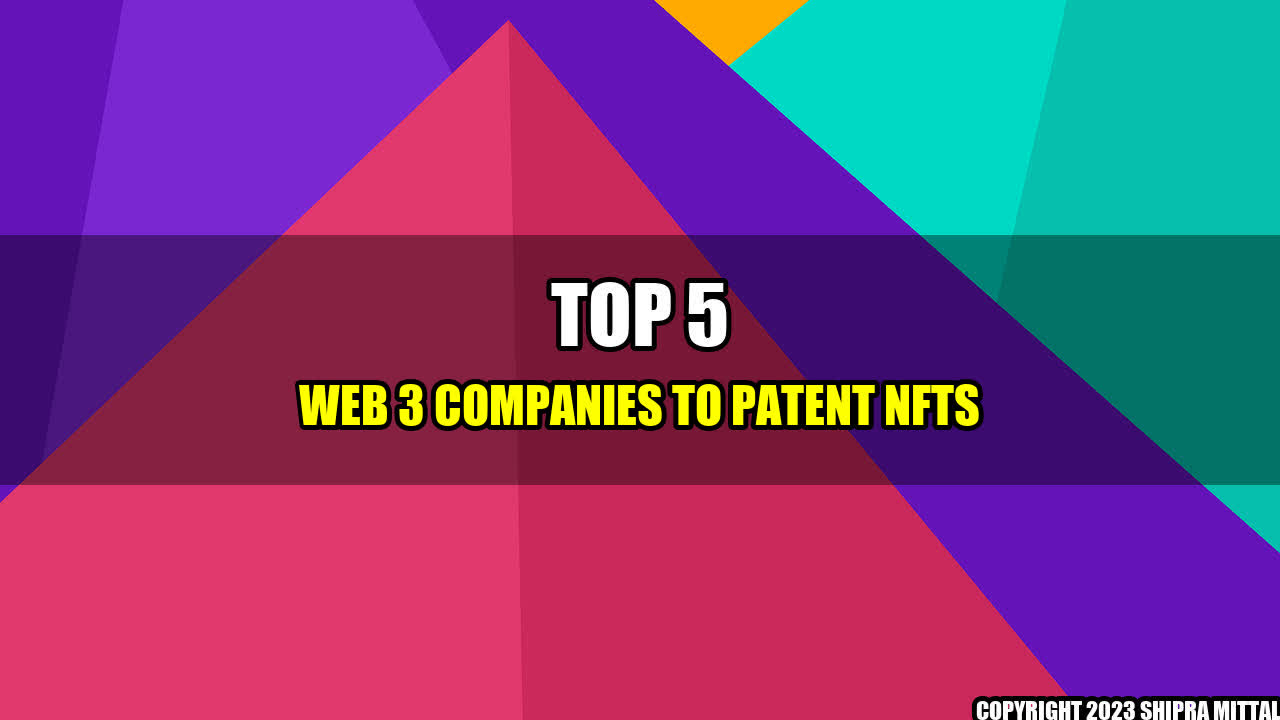
Have you ever heard of CryptoKitties? It's a blockchain-based game where users can buy, sell and breed virtual cats using Ether (ETH). Each cat is unique and its ownership is recorded on the Ethereum blockchain using a non-fungible token (NFT), which is a specific type of cryptocurrency that represents something unique or rare.
This is just one example of how NFTs are revolutionizing the Web3 ecosystem. NFTs are being used for digital art, collectibles, gaming, music, and more. They offer a way to prove ownership and authenticity of digital assets in a decentralized and transparent way.
As the use cases for NFTs continue to grow, companies are rushing to file patents to protect their intellectual property. Here are the top five Web3 companies that you should consider if you're looking to patent your NFT technology:
- BlockchainKudos - This platform offers a simple and secure way to create, buy, and sell digital assets on the blockchain using NFTs. They have filed several patents related to NFTs, including a system for creating customized NFTs based on user preferences.
- Nifty Gateway - This marketplace allows artists and creators to sell limited-edition digital art as NFTs. They have filed a patent for a method of creating and managing NFTs that have multiple owners.
- Dapper Labs - The creators of CryptoKitties have also filed several patents related to NFTs, including a method of using NFTs to represent ownership of physical assets. They're currently working on a new blockchain called Flow that's specifically designed for NFTs and gaming.
- Uperly - This company has developed a platform for creating and selling digital collectibles using NFTs. They have filed patents for a system that allows creators to easily mint and trade NFTs without technical knowledge.
- YellowHeart - This ticketing platform uses NFTs to prevent fraud and scalping for events. They have filed a patent for a method of using NFTs to verify the identity and ownership of ticket holders.
These companies are just a few of the many that are innovating in the NFT space. By filing patents, they're protecting their technology and ensuring that they have a competitive advantage in this rapidly evolving market. However, some critics argue that patenting NFT technology goes against the ethos of decentralization and open-source development.
In conclusion, NFTs are changing the way we think about digital ownership and authenticity. As this market grows, companies are vying for a piece of the pie by filing patents for their innovative NFT technology. While this may give them an advantage over their competitors, it also raises questions about the role of patents in a decentralized ecosystem.

Akash Mittal Tech Article
Share on Twitter Share on LinkedIn